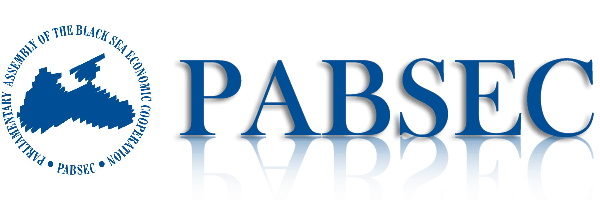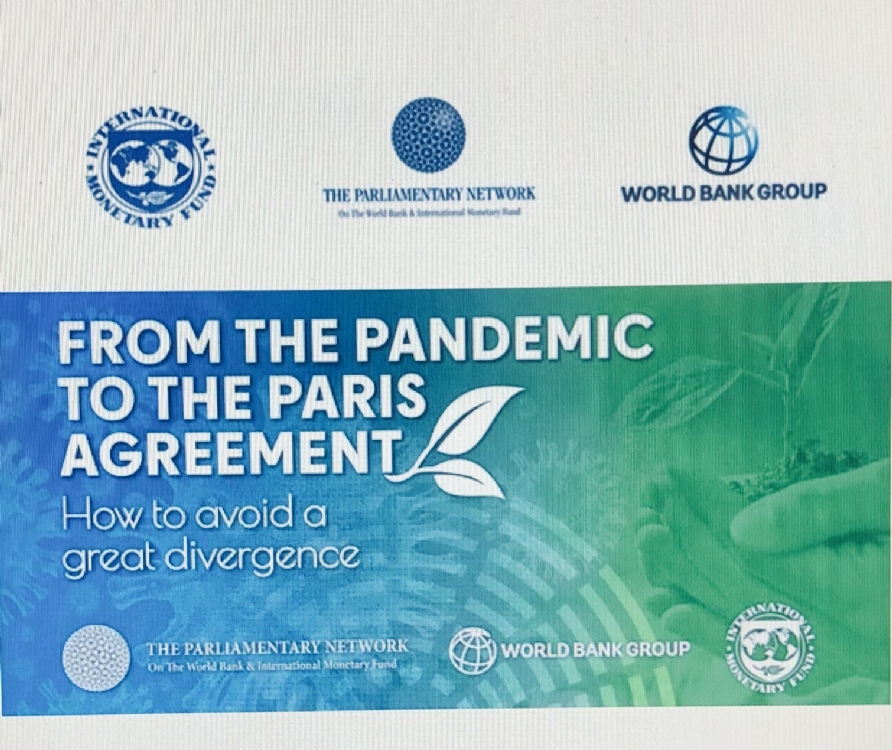Participation of the PABSEC International Secretariat to the World Bank and IMF 2021 Global Parliamentary Workshop “From the Pandemic to the Paris Agreement: How to avoid a great divergence”, 5-6 April 2021
Mr. Miltiadis Makrygiannis, PABSEC Deputy Secretary General, attended the 2021 Global Parliamentary Workshop titled “From the Pandemic to the Paris Agreement: How to avoid a great divergence”, organized by the Parliamentary Network on the World Bank and International Monetary Fund, on 5-6 April 2021.
The aim of the event was to provide the latest information to parliamentarians on the World Bank’s and IMF’s priorities and to offer a knowledge-sharing platform promoting parliamentary engagement and discussing tools and policies for a sustainable recovery from COVID-19.
In the meeting, titled “Getting to the end of the Tunnel”, the speakers pointed that the COVID-19 pandemic has led to one of the most severe recessions in history, with a sharp economic decline, reduced trade, and tremendous loss of jobs. Women, youth, and marginalized communities have been among the most affected populations and there is a risk of uneven recovery as some countries fare better than others. They marked that the main question today is how can we contain the impact of the crisis on lives and livelihoods?
The speakers also stated that the international financial institutions have mobilized unprecedented levels of funding for health and economic programs to cope with the effects of the COVID-19 pandemic. In order for these extraordinary levels of financial support to achieve their purpose to help countries counter the economic downturn, they need to be managed efficiently. In that way, speakers and participants tried to give answers to questions such as: What have we learned from the recovery so far? What are our current policy priorities and risks? How can legislators work with International Financial Institutions to synchronize fiscal and monetary support with the vaccine roll-out?
In the meeting titled “From Lockdown to Lift-off”, the speakers pointed that the current health and economic crisis has exacerbated debt stress with rising expenses and strains on market output and demand. According to the Institute for International Finance, the Covid pandemic has added US$24 trillion to the global debt over the last year, leaving it at a record US$281 trillion and the worldwide debt-to-GDP ratio at over 355%. This is a particular challenge for emerging and developing economies, and it will be important for International Financial Institutions to maintain support for countries who need it.
According to the speakers, for economic recovery to be effective long-term, a focus on sustainable development and resilience while applying socially inclusive policies will be key. The speakers focused on the types of policies that can build more inclusive, digital, and resilient societies and the ways that countries can deal with the challenges of high debt and high deficit while mobilizing resources to achieve the global development goals.
The workshop was chaired by Mr. Liam BYRNE, Chair of the Parliamentary Network on the World Bank and IMF, MP House of Commons of the United Kingdom. Several experts from the World Bank and the International Monetary Fund also took part and presented several reports and recommendations.

